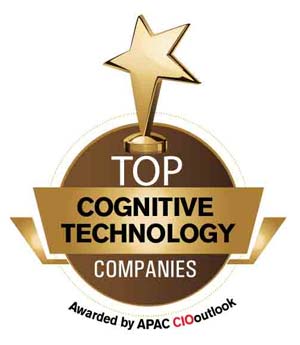THANK YOU FOR SUBSCRIBING

What Are the Differences Between AI and Cognitive Computing?

Artificial intelligence is a machine-processed and shown simulation of human intelligence. The underlying concept is to use a collection of theories, methods, and algorithms to allow computer systems to perform tasks in accordance with human intelligence.
Fremont, CA: Artificial intelligence (AI) and cognitive computing are technologies designed to reduce human effort and improve current processes in a variety of fields. Despite the fact that the two technologies are often confused as synonyms, there is still a general air of misunderstanding surrounding them.
The buzz around artificial intelligence and cognitive computing is undeniable. AI is used in varying degrees by companies, businesses, and start-ups. AI has greatly aided humanity, saving us a great deal of time, manpower, and effort. At the same time, it becomes more complex and nuanced as new needs and demands emerge.
The Applications of AI
 Artificial intelligence is a machine-processed and shown simulation of human intelligence. The underlying concept is to use a collection of theories, methods, and algorithms to allow computer systems to perform tasks in accordance with human intelligence. Experts who support AI believe that it will one day be able to outperform humans in terms of precision, intuition, and intellect.
Artificial intelligence is a machine-processed and shown simulation of human intelligence. The underlying concept is to use a collection of theories, methods, and algorithms to allow computer systems to perform tasks in accordance with human intelligence. Experts who support AI believe that it will one day be able to outperform humans in terms of precision, intuition, and intellect.
AI is now used in a variety of applications, including digital assistants like Siri, Cortana, and Amazon's Alexa, driverless car computer vision systems, video games like Far Cry and Call of Duty, where characters learn users' habits and react to natural stimuli, and applications in banking, transportation and logistics, education, art, and aviation, to name a few. Retailers such as Target and Amazon use AI in the form of predictive analysis in manufacturing and purchasing. Artificial intelligence (AI) is used in medicine for testing and analytics. Healthcare bots are robots that schedule appointments, provide customer service, and are available 24 hours a day, seven days a week. Another fascinating AI application is fraud detection, which is used by banks to track fraudulent credit and debit card transactions. With time, the potential for AI to contribute to almost any operation in any sector is becoming apparent.
The Applications of Cognitive Computing
Cognitive computing is an AI subfield that refers to computing that focuses on higher-level thinking and comprehension. Human perception, reasoning, and decision are similar to computing. It is capable of dealing with both symbolic and conceptual data. It responds to a variety of stimuli and can make correct decisions in difficult circumstances.
IBM Watson was one of the first organizations to use cognitive computing as a technology. By incorporating natural language and evidence-based learning, cognitive computing finds application in areas that require better decisions, lower costs, and better results. With the aid of transformational technology, it makes problem-solving easier. Speech recognition, emotion analysis, risk evaluation, and behavioral recommendations are all fields where cognitive computing is used.
See Also :- Top Collaboration Technology Companies
Weekly Brief
I agree We use cookies on this website to enhance your user experience. By clicking any link on this page you are giving your consent for us to set cookies. More info
Read Also













